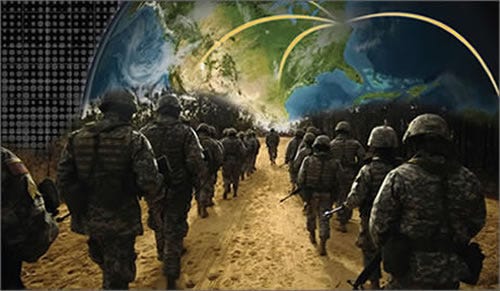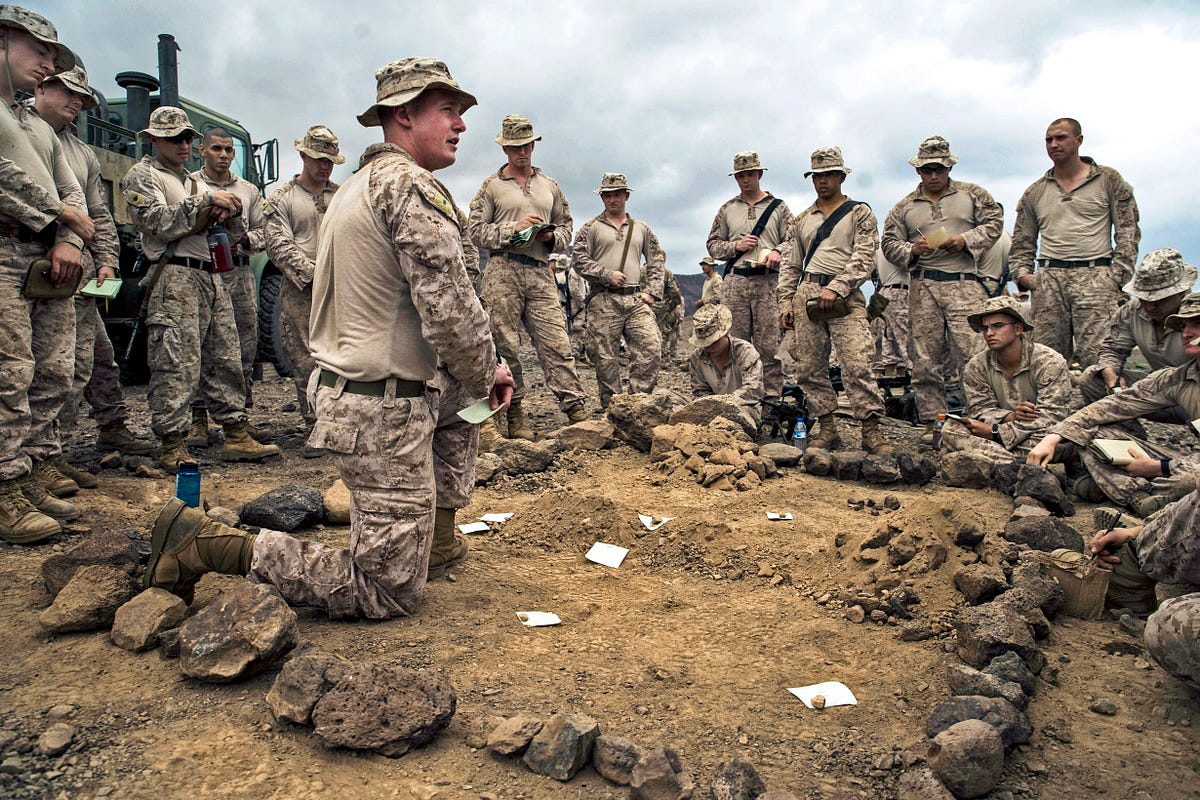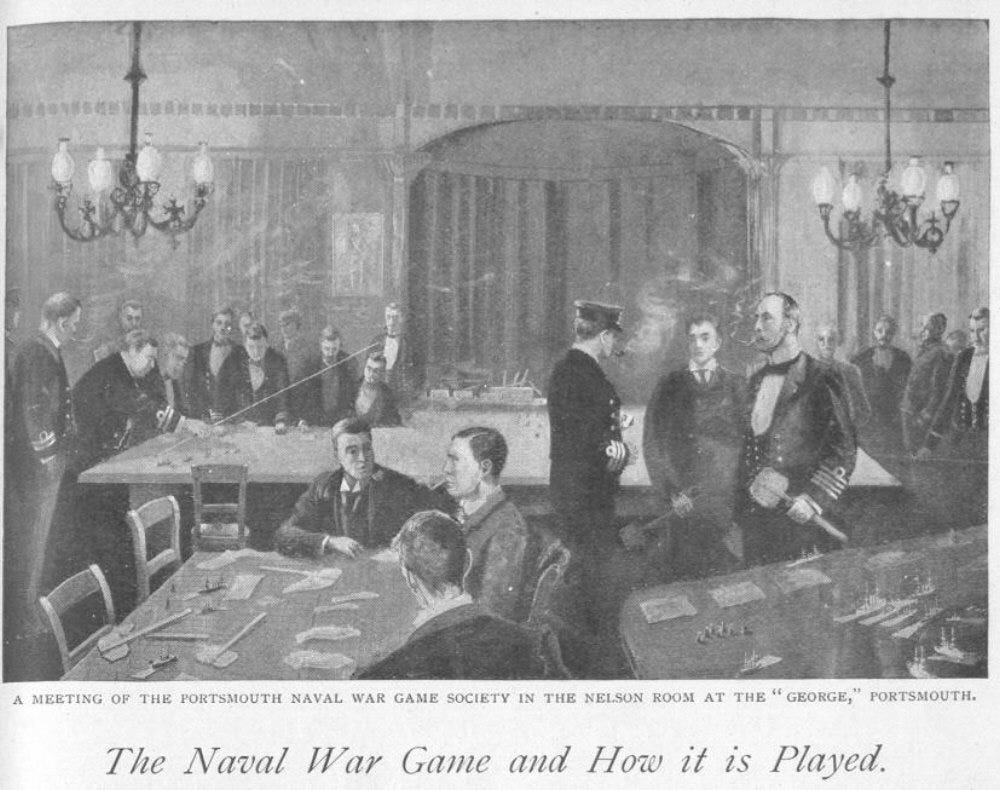Joe Byerly is an armor officer in the U.S. Army . He frequently writes about leadership and leader development on his blog, From the Green Notebook. The opinions expressed are his alone, and do not reflect those of the U.S. Army, the Department of Defense, or the U.S. Government.
Recently, we tuned in for New America Foundation’s Future of War conference and watched as the military took some hits for its lack of strategic thinking, inability to work with civilian leadership, and beingunable to adapt. None of these charges are new or far off the mark. As former Undersecretary of Defense Michele Flournoy pointed out, we need to reward the behaviors we want. This largely is directed at personnel and how the military develops its leaders.
 To prepare for any future war, we need to reassess how we retain, educate, and promote talent. This will help us produce leaders that can think strategically and adapt to ever-changing warfare. Time matters when it comes to preserving and improving our own capabilities and we cannot afford to spend years slowly adapting to an enemy on the battlefield. While major changes to our personnel system may be forthcoming, it will take time to enact them, so we must find other ways to promote, foster, and reward strategic thinking and the peacetime practices that lead to rapid adaptation on the battlefield.
To prepare for any future war, we need to reassess how we retain, educate, and promote talent. This will help us produce leaders that can think strategically and adapt to ever-changing warfare. Time matters when it comes to preserving and improving our own capabilities and we cannot afford to spend years slowly adapting to an enemy on the battlefield. While major changes to our personnel system may be forthcoming, it will take time to enact them, so we must find other ways to promote, foster, and reward strategic thinking and the peacetime practices that lead to rapid adaptation on the battlefield.
There is a direct correlation between our peacetime education and wartime adaptation. This type of education is not episodic…it is a life-long process.
In Military Adaptation in War with Fear of Change, Williamson Murray argues,
Only the discipline of peacetime intellectual preparation can provide the commanders and those at the sharp end with the means to handle the psychological surprises that war inevitably brings.
There is a direct correlation between our peacetime education and wartime adaptation. This type of education is not episodic, taking place only a few times throughout one’s career; it is a life-long process. Currently, the military is progressing in the institutional and operational domains of leader development — the professional military education and career experiences that make up the triad of individual professional development. And it is coming up short. To fight future wars leaders must be prepared across all three domains. Beyond reading lists, the various military services do very little to assist individuals in their personal study of war and warfare; individuals lack the incentives to deepen their professional knowledge on a continuous and consistent basis. There are no mechanisms like those Flournoy mentioned to reward positive behavior, let alone those that Murray argues are a prerequisite to wartime adaptation.
…the military should foster, support, and reward individual involvement in communities of practice across the profession that support a life-long study of war and warfare.
Instead of trying to develop institutional programs for life-long learning, assome have suggested, the military should foster, support, and reward individual involvement in communities of practice across the profession that support a life-long study of war and warfare. Military leaders should seek out connections with other leaders in their domain or practice to help advance individual development so that they will be prepared to adapt when the time comes.
Groups like the Defense Entrepreneurs Forum and Military Writers Guildare examples of these new professional organizations that offer the promise of strengthening the self-development domain. Although these specific organizations are new to the defense landscape, the ideas behind them are not. Etienne Wegner-Trayner, a leading researcher on communities of practice, defines them as “groups of people who share a concern, a set of problems, or a passion about a topic, and who deepen their knowledge and expertise in this area by interacting on an ongoing basis.”[1] It doesn’t matter if interactions take place online or in person — the key is constant interaction driven by a willingness to participate. These types of networks strengthen the self-development domain in multiple ways. They provide extrinsic motivation for self-study, help individuals develop personal learning networks, and the constant interaction helps develop critical thinking skills.
Historical Precedent for Community-Based Learning
One of the first identifiable communities of practice built on the study of war and warfare began in the summer of 1801 when a small group within the Prussian military came together, and as stated by their bylaws, created an institution:
…to instruct its members through the exchange of ideas in all areas of the art of war, in a manner that would encourage them to seek out truth, that would avoid the difficulties of private study with its tendency to one-sidedness, and that would seem best suited to place theory and practice in its proper relationship.[2]
 Meeting of the Reorganization Commission in 1807 by Carl Rochling (Wikimedia Commons)
Meeting of the Reorganization Commission in 1807 by Carl Rochling (Wikimedia Commons)
The Militarische Gesellschaft (Military Society) was founded in Berlin by Gerhard Johann David von Scharnhorst and a few fellow officers to address the issue of a dogmatic adherence to doctrine and lack of professional study among its officer corps.[3] Their members included officers, government officials, and members from the academic community who met over 180 times and ultimately disbanded in 1805 due to mobilization for the Napoleonic Wars. Their weekly meetings consisted of the presentation of professional papers, book reviews, and a discussion of military related topics posed by its members; also, each year they conducted an operational analysis of a past battle.[4] In addition to their weekly discourse, they hosted essay competitions and published a professional journal, Proceedings,for its members.
The society provided a strong intellectual climate that stimulated its members’ thinking and personal development, setting the foundation for great individual and organizational achievement.[5] Its members, who included historic figures such as Carl von Clausewitz, August Neidhart von Gneisenau, and Gerhard Scharnhorst formed the core group of leaders that quickly reformed the Prussian military following its defeat at the hands of Napoleon in 1806.[6] Sixty percent of its 182 members, half of whom joined as junior officers, became generals. Five of the eight Prussian Chiefs of Staff from 1830–1870, as Prussian power grew to dominate Europe, were also members of the Society.[7]
In a similar, if more modern vein, forums like CompanyCommand andPlatoonLeader have provided an online space for company-level leaders in the Army to discuss problems, share tools, and disseminate best practices. They are communities of practice built around small unit leadership. In their book, CompanyCommand: Unleashing the Power of the Army Profession,the founders of the two websites highlight that the online space benefits individual development, “by serving as a switchboard connecting present, future, and past company commanders in ways that improve their professional competence.”[8]
 U.S. Marines receive a sand table briefing before a platoon assault exercise on Arta Range, Djibouti, Feb. 10, 2014. (U.S. Air Force photo by Staff Sgt. Erik Cardenas)
U.S. Marines receive a sand table briefing before a platoon assault exercise on Arta Range, Djibouti, Feb. 10, 2014. (U.S. Air Force photo by Staff Sgt. Erik Cardenas)
The forums also host a reading program called the Professional Reading Challenge, which gives company commanders the ability to blend face-to-face interaction with online discourse. Along with promoting reading, the program encourages members to capture their ideas in writing on the message boards. Recently, the forums added an interactive feature they call The Leader Challenge. Using video interviews of officers from deployments in Afghanistan and Iraq, forum members are presented with a real-life vignette and asked to respond with what they would do if they were in the same scenario. After responding, members are able to read others’ responses and listen to what happened in the original scenario.[9] This process allows leaders to continue to learn from a challenging event which may have taken place four or five years ago. The benefits to members are evidenced by the number of forum participants who came out on the recent Army Brigade and Battalion Commander Selection List.
The Militarische Gesellschaft along with Company Command or Platoon Leader Forums are great examples of how communities of practice assist in the development of its members by encouraging reflection, professional reading, writing, and discourse. As individuals become more active within these communities, they own self-development is strengthened.
Leveraging Communities of Practice for the #FutureOfWar
Communities of practice provide the social incentives required to stay committed to life-long learning. A small-scale study published in 2011 posited that two vital components of self-development are intrinsic and extrinsic motivation. The researcher found that recognition by mentors and peers both online and/or offline supports these motivations. As members of the profession join various communities, the social interaction provided will help them in their personal intellectual preparation to successfully lead and make decisions during the next conflict.
 A Meeting of the Portsmouth Naval War Game Society (via Army Group York)
A Meeting of the Portsmouth Naval War Game Society (via Army Group York)
Communities of practice also create opportunities for individuals to develop personal learning networks. The connections made within these groups put individuals into contact with those who they can learn from on a one-on-one basis. Our own experiences validate this argument. For example, while studying at the Naval War College, I relied heavily on a personal learning network built through involvement with the CompanyCommand and Defense Entrepreneurs Forum in developing ideas and for assistance with research and writing.
The constant interaction provided by these communities help individuals develop critical thinking skills. Dr. Antulio J. Echevarria’s essay The Trouble with History, argues that many military professionals focus on the accumulation of knowledge rather than analyzing and evaluating it.[10]Many service members tend to approach reading lists with a check list mentality, instead of using them to rigorously examine concepts and past events. By exploring books and articles and discussing them in a community of practice, individuals are encouraged to move towards a more sophisticated understanding of the material, thus developing the critical thinking skills required of leaders at all levels.
While military professionals used communities of practice for centuries, the career benefits that they provided began disappearing in the Progressive Era. At this time in American history, civil service systems began focusing accession and promotion on Industrial Age mechanisms that were fairer across the personnel pool. This was meant to weed out nepotism and other class- and relationship-based influence.
Military institutions have continued to struggle with how to encourage self-development in leaders, as well as codify this development into a mechanism for career progression.
As the personnel system began to focus more on fairness than effectiveness — thereby diminishing the requirement for leadership to personally develop the leaders that would replace them — the levers used to provide benefit to self-development were removed. Military institutions have continued to struggle with how to encourage self-development in leaders, as well as codify this development into a mechanism for career progression. Our ability to prepare leaders for the development of strategy and to adapt on the battlefield is an outgrowth from these factors.
How do we leverage communities of practice and provide incentives for self-development in today’s military? This is a topic we continue to struggle with — and one we look forward to addressing in this Leadership and the #FutureOfWar series on The Bridge. If you have an idea on what is required in developing leaders for the #FutureOfWar, send us a note or submit your post to our Medium page.
We look forward to the discussion.
[1] Wegner, Etienne, Richard McDermott, and William Snyder. Cultivating Communities of Practice. (Boston: Harvard Business Review Press, 2002), 4.
[2] Charles White, The Enlightened Soldier: Scharnhorst and the Militarische Gesellschaft in Berlin 1801–1805, (New York: Praeger Publishers, 1989), 191.
[3] Ibid., 36.
[4] Ibid., 45.
[5] While correlations between the loss to Napoleon in 1806 and the Militarische Gesellschaft are outside the scope of this article, it is important to address that prior to 1806, the Prussian military culture, organization, strategies, and tactics were all dominated by concepts inherited from Frederick the Great. This rigid adherence to tradition by the majority of the Prussian officer corps negated any of the initial benefits gained by individuals from the military society. It wasn’t until after the Prussian defeat that the society’s members moved into positions of key leadership, thus capitalizing on the relationships and education cultivated and developed prior to the outbreak of war.
[6] Ibid., 207.
[7] Ibid., 49.
[8] Nancy Dixon, Nate Allen, Tony Burgess, Pete Kilner, and Steve Schweitzer, CompanyCommand: Unleashing the Power of the Army Profession, (West Point: Center for the Advancement of Leader Development and Organizational Learning, 2005), 16.
[9] The Company Command website has a thorough explanation of the Leader Challenge at http://companycommand.army.mil/
[10] Echevarria II, Antulio. “The Trouble with History.” Parameters, Summer 1995.http://strategicstudiesinstitute.army.mil/pubs/parameters/articles/05summer/echevarr.pdf (accessed April 11, 2014).
No comments:
Post a Comment